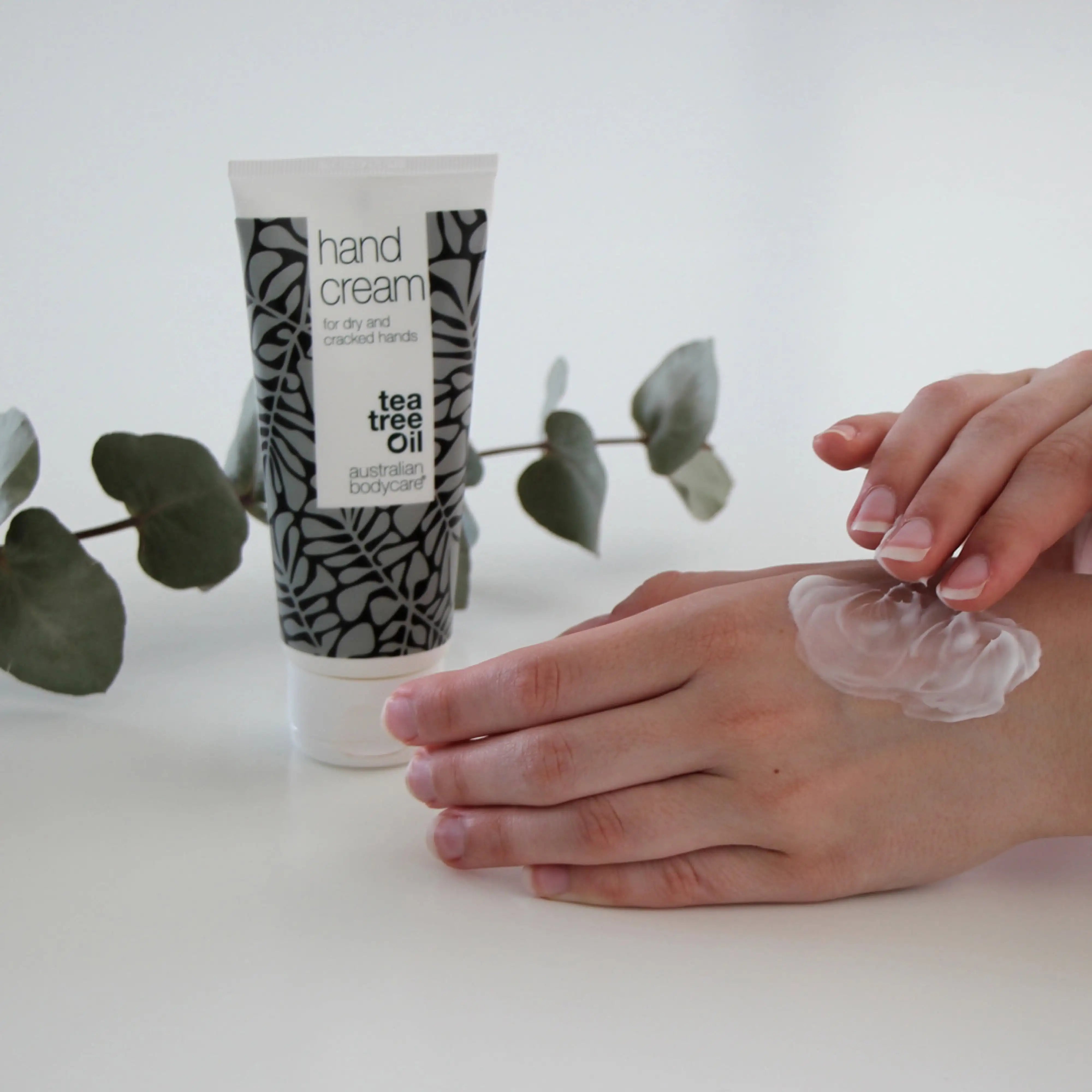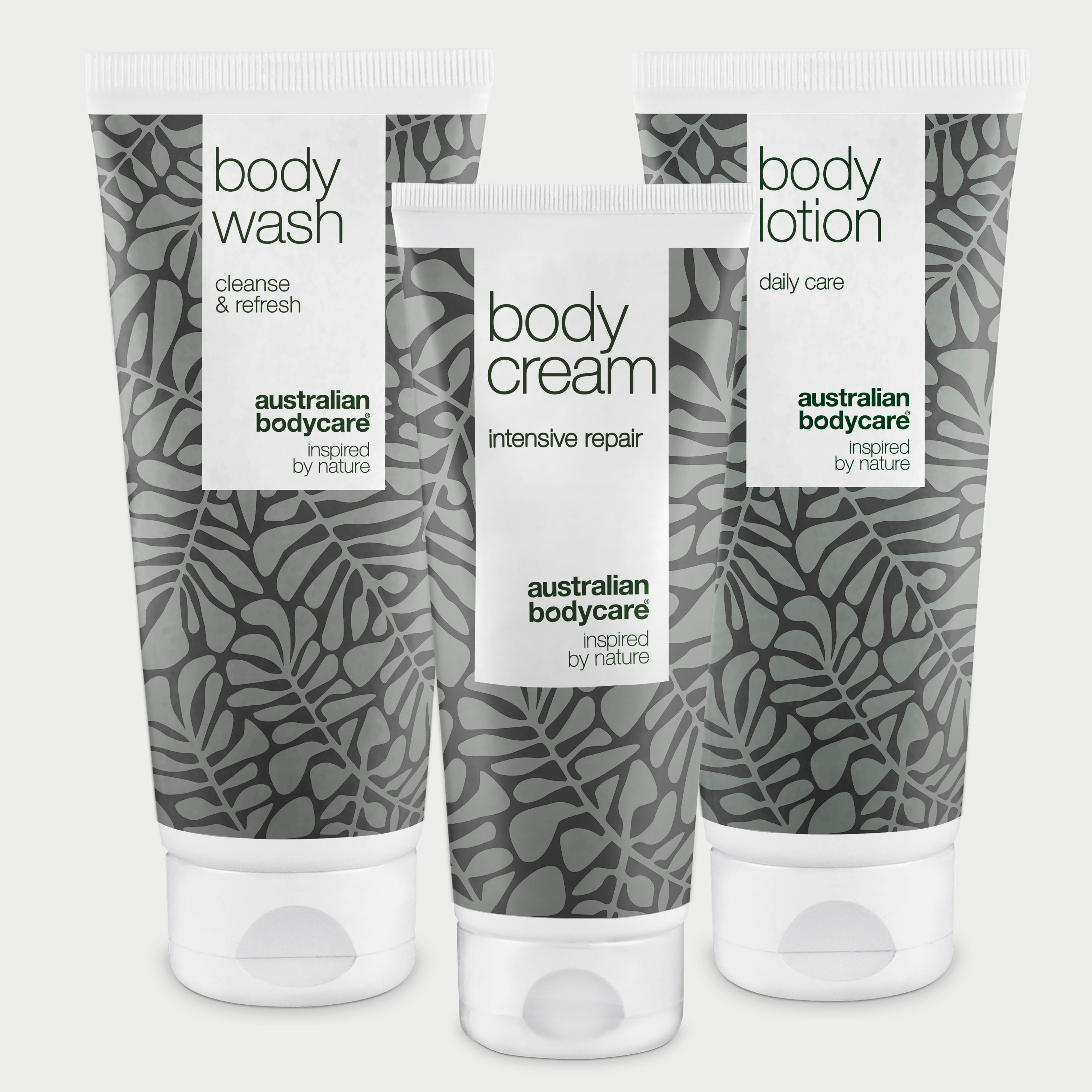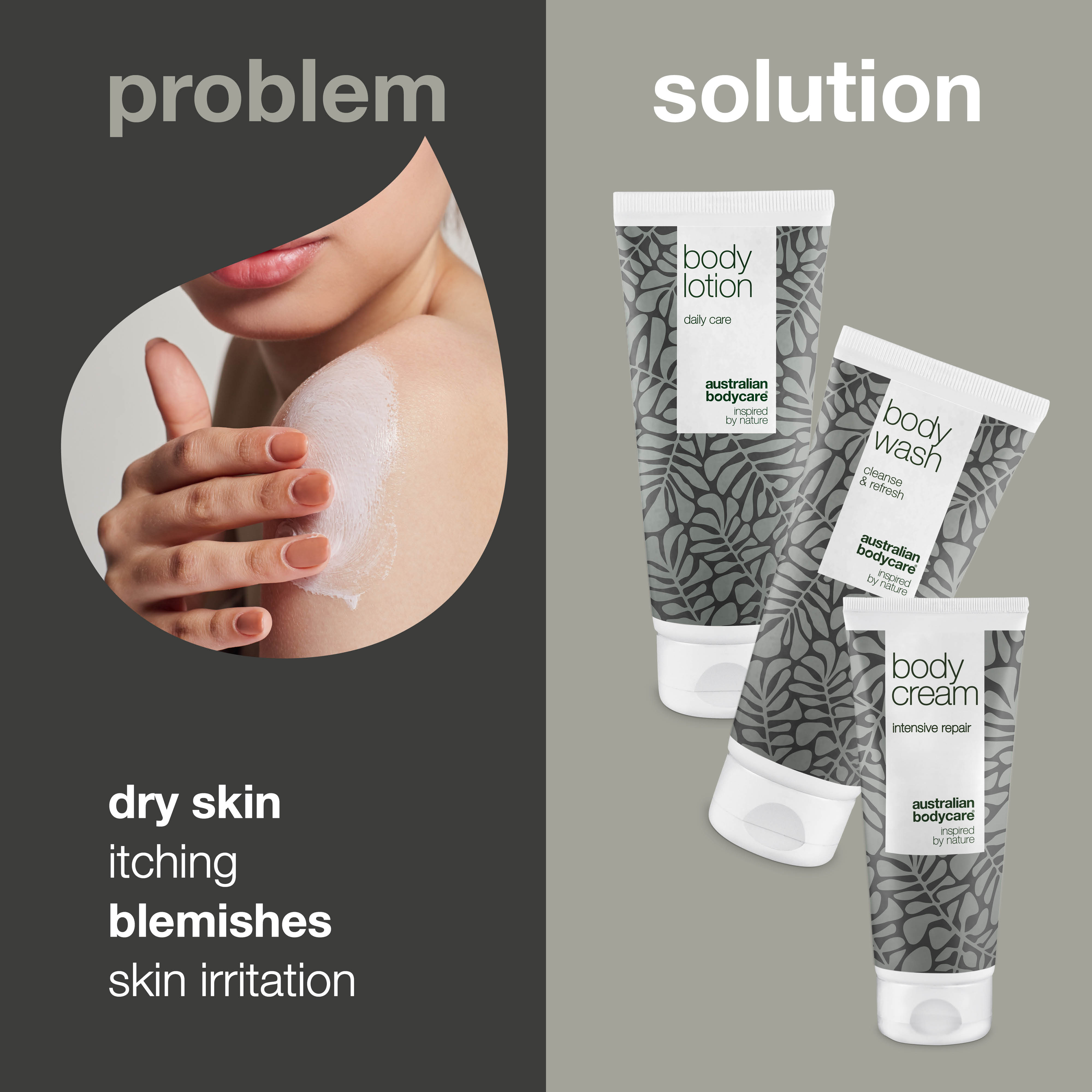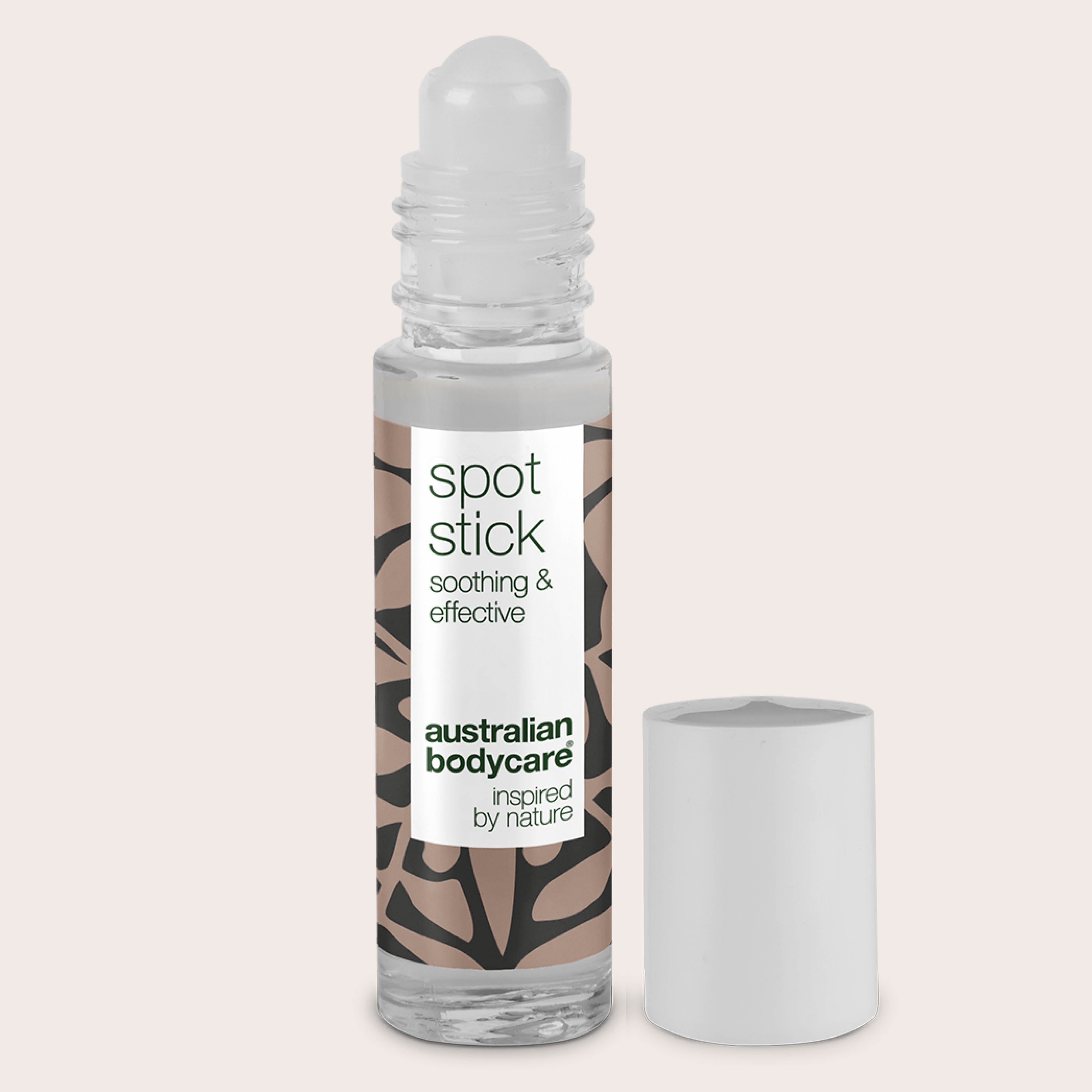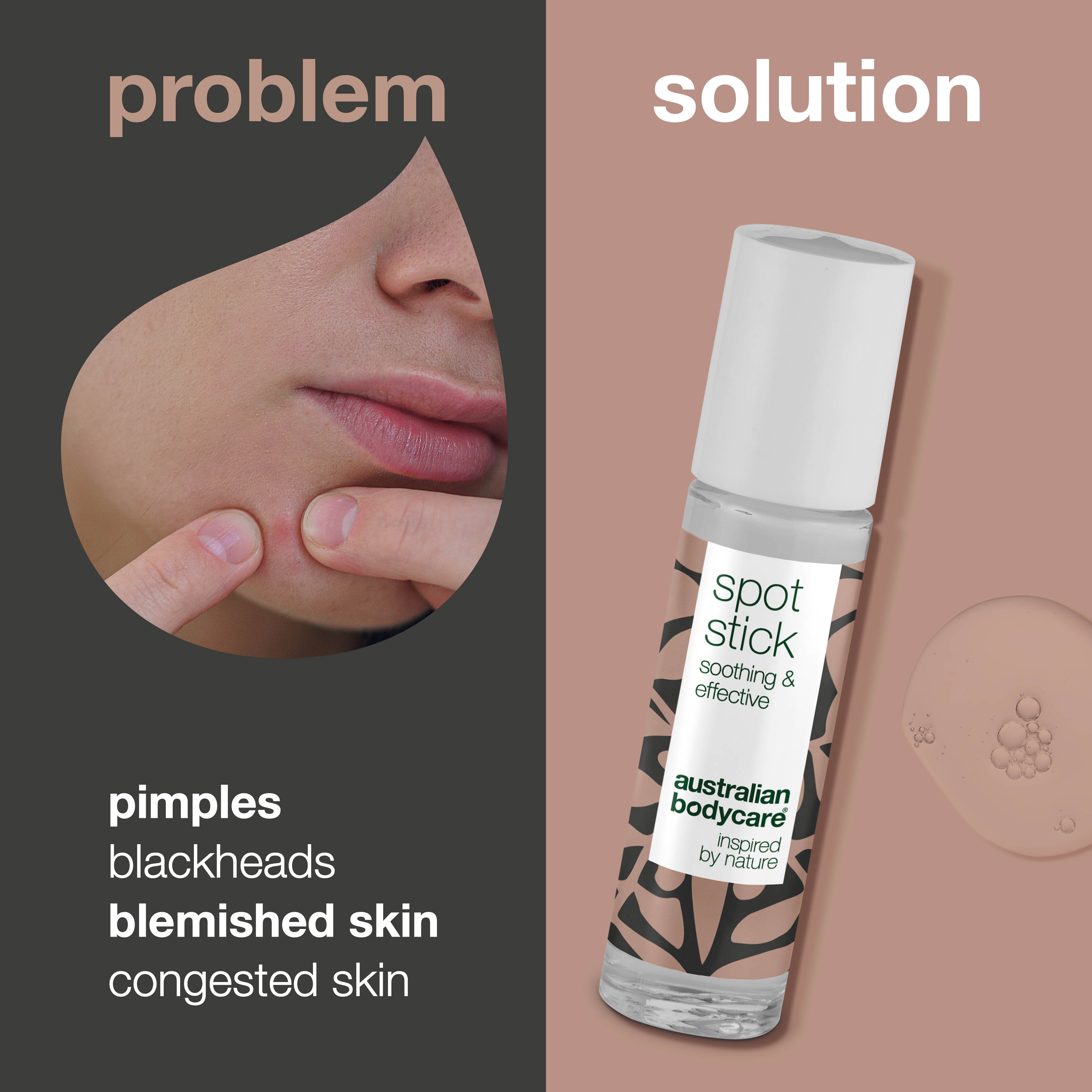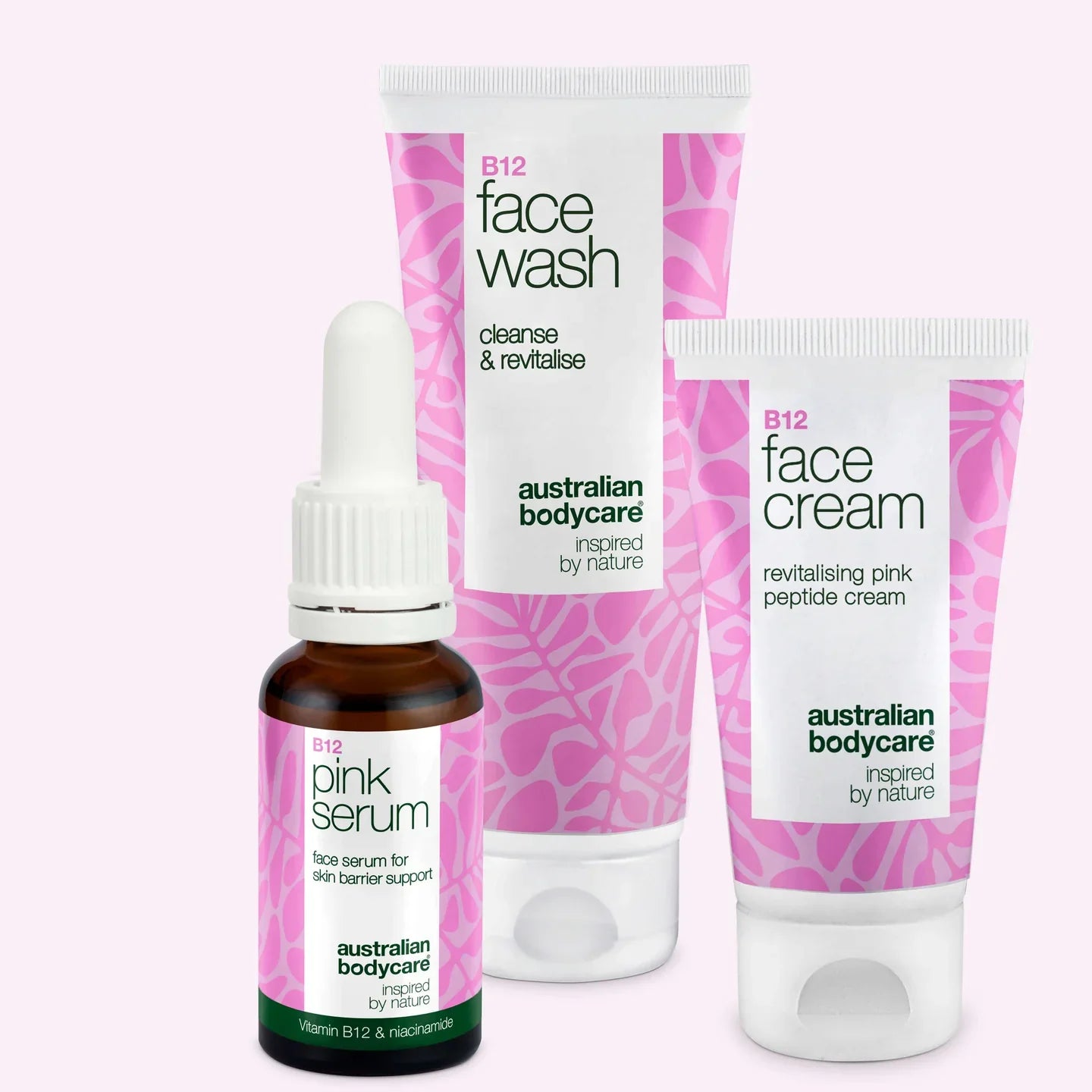Itching: Where does it itch, why, and what can be done about it?
Itching is a very broad concept. Any part of the body can itch, and anyone can be affected. There are many types of itch. The causes also differ widely, and so do treatments for it.
It is most important to find the cause before trying to treat it.
Table of contents
What are itches – and who gets them?
Itching is not a disease, but a symptom of something else. It is always very important, therefore, to find the cause of the itch, and not just to treat the symptoms.
Click below and read more about the most frequent forms of itch and how to stop them.
There are a variety of causes of itching, from a mild allergic reaction to serious illness. For general practitioners, an itch is a very common symptom, and they meet it frequently.
Itching skin
If anyone has an itch, they have a powerful urge to scratch or claw at the skin. We have all felt it, and it is a completely natural reaction.
Itching starts when substances, among them histamines, stimulate the nerve cells in the skin. The Latin term for itching skin is pruritis. It may be felt in a single place, or all over the body.
The extent of an itch, how it progresses and how long it lasts depend on what has triggered it.
Anyone can suffer from itching, young or old, women and men. However the occurrence of itching tends to increase with age.
Different types of itching
An itch is something everyone knows about. It itches somewhere, you scratch a little, and it goes away. In fact we can feel an itch, just by thinking about it. If we see someone else scratching themselves, we feel an urge to scratch too.
This is very natural and quite harmless.
Itching in one place or all over the body
An itch can start anywhere on the body, from top to toe. There may be an itch in a particular place on the scalp, face or neck, on the hands, under the arms, in the groin or the intimate area, in the anus, on the legs, between the toes or under the feet.
In short: it can itch anywhere – and it can also itch all over your body at once. Sometimes an itch is felt in a particular place, but nothing is visible on the skin.
At other times there are clearly visible red spots, a rash, blisters, scaly skin, small swellings on the skin, dry skin, cracked skin or other forms of skin irritation.
Read more: Causes of anal itching and treatment for it
Itching on the back
Many things can cause itching, and itching on the back will normally be evaluated together with other symptoms to find the cause. It is a good idea to take notice if your back itches constantly, and you are otherwise fit and healthy.
It could, for example be due to the skin parasite that causes scabies, but it might also be an allergic reaction or contact eczema. An itch is a warning from the body of something that should not be there, or something your skin cannot tolerate.
If you sleep in pyjamas, perhaps you should see whether they are irritating your skin.
Itching can be caused by external factors, but it may also be a sign of more serious illness.
If your back itches at night, or itches almost constantly, it is best to consult a doctor, as it may also be caused by various types of cancer.
Itching without a rash
Itching is often accompanied by some kind of rash or an allergic reaction. In other cases the skin may itch without a rash, and appear quite normal.
If any part of the body itches without a rash, it may simply mean that the skin is dry or irritated, but it may be a sign of more serious illness. Itching may be caused by anything from toxins on the skin to liver or kidney disease or skin cancer.
The commonest cause of skin itching without a rash is dry skin. If you do not have red spots or any other changes in your skin, then the itch is probably due to dry skin.
As a rule, a good moisturising cream will help, but if you have extremely dry skin, it may be a sign of dermatitis. In some cases it will be necessary to consult a doctor.
Anyone can have dry skin and itching on the body – regardless of age or gender – but as you grow older, your skin becomes thinner and drier, and the risk of itching increases.
Even though dry skin is the commonest reason for itching without a rash, the itch may be caused by something more serious.
Skin itches without a rash may also be associated with nerve conditions caused by diabetes, a pinched nerve, or shingles, which can cause serious skin itches.
Itching on the neck
There are many possible causes of itching on the neck. It is often caused by an allergic reaction to perfume, soap, medication, cosmetics or jewellery. However, it may also be caused by lice, psoriasis, seborrheic eczema or contact eczema. Skin problems such as acne, eczema and atopic eczema also cause itching.
Many women suffer from a dry, itching eczema on the neck during pregnancy, which is atopic eczema. This is very common among children and young people up to the age of fifteen too.
As mentioned, itching on the neck may be due to contact eczema – allergic or non-allergic – and in both cases typical symptoms are itching and redness followed by scaly skin.
Itching under the arms
An itch under the arms may be caused by many things, such as an allergic reaction to perfume (e.g. from a deodorant), but may also be due to fungus on the skin. Candida is a yeast which normally lives on humans, but can occasionally cause an itching infection, referred to as candidiasis. Under the arms, candidiasis may cause a flat, red rash with clear borders.
In most cases of itching under the arms, the cause will be eczema or a fungus on the skin.
Shaving under the arms may also cause irritation and itching, and you may sometimes see red spots. These are called shaving spots or barber’s itch. Barber’s itch is a bacterial infection with subsequent inflammation in hair follicles. It produces red spots or pimples and itching. Find a solution for your problem here
Itching on the face
Several things can cause itching on the face, which as a rule will be combined with some kind of rash. However, itching on the face may also be due to fungus, which is often confused with a rash or eczema. The most common causes of itching on the face are ringworm, seborrheic dermatitis, atopic eczema, contact eczema, slapped cheek syndrome, impetigo or rosacea.
If you have redness, itching, scale or similar irritation on your face, you should see a doctor, as it may be caused by several different skin diseases. Some of these are infectious, while others are complications of other diseases. If you have more redness on your face than normal, it could be an early sign of rosacea, which often affects those aged 30-50.
Itching under the feet
Itching under the feet may have several causes, but one type of itching is due to liver disease. This is a symptom of a partial or total block of the outlet from the liver via the bile duct, which is sometimes felt as itching on the palms and soles of the feet. This itch can be relieved by various medicines, but it is most important to find the cause of the itch. It is then possible to treat any disease that is causing the itch.
Itching under the feet may also be an early sign of diabetes.
Itching feet are rarely dangerous, however, as in most cases the itch is due to fungus, an allergic reaction, psoriasis, scabies, or some other complaint that can be treated. It is always a good idea to see a doctor, since the itching may be caused by disease.
Itching on the legs
If your legs itch repeatedly, it may be due to several different causes. It could be a sign of allergy, eczema or a rash. It might be an early sign of type 2 diabetes, or scabies. Itch may also be due to getting too little exercise or sitting still too much at work, which results in restless legs or itching. Itching may also be caused by shaving, or dry skin, which can be treated with a good moisturising cream.
The most common causes of itching on the legs are dry skin, keratosis pilaris, acne, folliculitis, cholinergic urticaria, jock itch, stasis dermatitis, restless legs, diabetes or varicose veins.
Itching under the skin
If you have an itch under your skin, it can be due to several different things, and at first it may be difficult to decide the cause of an itch, since there are not necessarily any red spots, eczema or rashes on the skin. Itching under the skin may be quite harmless, but it may also be due to more serious underlying diseases.
A frequent cause of itching under the skin is scabies, caused by a parasite. If the itch has started recently, it may in many cases be scabies. If so, the itch will be worst at night. The entrances to the mites’ burrows are often found on the fingers, wrists and elbows, and other places where the skin is thin, such as on the penis or scrotum or around the nipples.
Varying symptoms
Itching may be mild and only slightly annoying. It may feel as if the skin is burning. An itch can tingle, sting, ‘crawl’ or be really painful. So itching is a really broad concept. It feels different from person to person, because we have different pain thresholds, and because the extent of the symptoms vary widely.
Thus the most important thing is to have the itch investigated if it is more extensive and lasts longer than the normal kind that everyone has. The causes vary, and that is why it is necessary to let a doctor look at your skin and your symptoms.
What are the causes of itching?
Itching is a very widespread symptom. In fact, it is so common that it is mentioned at 2 % of all general practitioner consultations. Itching can appear in many ways and is felt in many degrees of intensity. It is therefore a very broad concept, with a large number of different causes. It is often possible to find the cause of itching. In other cases it may be difficult to pinpoint why there is an itch.
Why does my skin itch?
First and foremost, we can distinguish between internal and external causes. Below is a list of some frequent causes. The list is far from exhaustive, however, and many other things may cause itching.
Internal causes
- Skin diseases or complaints such as hives, atopic eczema (asthma eczema), shinglesor psoriasis.
- Fungus.
- Hay fever.
- Dry skin.
- Hormonal changes, e.g. in connection with pregnancy. – Diseases such as chickenpox or measles.
- Diseases such as diabetes, cancer, kidney disease, cirrhosis of the liver, bilious disease, disease in the lymph glands, diseases of the blood, HIV or metabolic diseases.
Many skin diseases and allergies will cause skin itching, but the cause may be far more serious disease, or cancer among other things. Dry skin is a very common cause of itching. It is seen especially among the elderly, and in some climates is more common in the winter months, when air humidity is low and the climate is cold and dry.
Insufficient fluid can also cause dry skin. It is particularly a problem for elderly people, who often do not have the same feeling of thirst, and therefore forget to drink enough water.
External causes
- Contact with nickel, perfume, latex, soap or other things.
- Contact with animals with fur.
- Foods, such as fruit, nuts or eggs.
- Skin conditions such as barber’s itch or scale.
- Medication, both conventional medicinal products and natural medicines, or stimulants such as cocaine.
- Insect bites of mosquitoes, horseflies, ants and other insects, or bee and wasp stings.
- Head lice, scabies (mites), bedbugs or other parasites.
In some cases the cause of the itch is quite obvious. If your scalp itches, for instance, it is logical to check for lice – and if your find lice, then they are causing the itch. If you have been stung by a wasp, or bitten by a mosquito or other insect, then it is not difficult to understand why it itches.
If you already have an allergy, and you touch an animal with fur, it can cause hives and itching. Some drinks and foods can also trigger an allergic reaction. The same applies to contact with substances such as nickel, perfumes, washing powders or soap.
Shaving may lead to barber’s itch with spots on the skin that itch. Dandruff may also cause itching on the scalp, and if so, you should look for a shampoo for itching scalp. A doctor will typically begin by looking to see whether there is a local cause of the itch, for example some type of contact eczema or allergic reaction.
Then the doctor will check whether it is caused by a skin condition such as atopic eczema. Otherwise, naturally, they must find out whether there is any more serious disease at the root of the itching. Many patients may already know about their serious disease, and then the itching will be another condition on top of it.
Itching at night
If you suddenly begin to feel an itch on your body in the evening, and especially at night, it could be scabies, which is caused by a mite. A frequent cause of itching is contact eczema or an allergic reaction after contact with something that triggers the reaction.
Itching and diabetes
Itching all over the body or in particular areas of skin (legs, feet, hands and so on) may be an early sign of diabetes. If your arms, legs or feet itch, it may be one of the first signs that you have type 2 diabetes. This type of diabetes develops slowly, and many people do not discover it until it is too late.
The itching in these areas may be caused by lack of blood circulation, dry skin, or a number of other symptoms of diabetes due to high blood sugar. Poor blood circulation leads to narrowing and hardening of blood vessels, and you may therefore feel a noticeable itch on the surface of the skin associated with diabetes.
Itching in damp areas such as under the arms, between the toes, under the breasts or in the groin may also be a sign of diabetes, as the excess sugar from the blood is deposited near the urethra when you urinate and on the skin when you sweat.
If you notice other symptoms of diabetes, such as pronounced thirst, more frequent urination, cuts and scratches taking a long time to heal, nausea and headaches, tiredness, or disturbances of feeling or vision, you should see a doctor, as these may be signs that you have diabetes.
How can itching be treated?
If you know why you have an itch, you need not see the doctor. The itch may, for example, be caused by lice, insect bites or barber’s itch after shaving. If you do not know why you have an itch, and it continues to itch a lot, you should always visit a doctor to find out why.
If you have other symptoms at the same time, such as facial puffiness, fever, breathlessness, dizziness or other serious symptoms, you must see your doctor at once. It is generally important to find the reason for the itch before beginning to treat it.
There are many widely different causes. Some are serious, but fortunately most are not so serious. However, it is important to know the cause, and only then can you find precisely the right treatment.
Itching must be treated
Regardless of what is causing the itch, there are various factors that can exacerbate it. If there is inflammation in the skin, for example, the itch will become worse. If you are troubled by itching, you will typically find it gets worse when you are in dry surroundings, or where it is very hot or very cold. In periods when you are under stress or otherwise under mental strain, you may also find that it itches more.
Mild itching is annoying, but you can live with it if it is treated. Severe itching can ruin the quality of life so much that it is almost unbearable. If you itch all over and cannot sleep at night because of the itch, it is very serious and must be treated accordingly.
Cream for itching skin
Dry skin is a frequent cause of itching. In some climates it is particularly common in the winter, when the air is cold and dry. The best remedy for dry skin is a rich, nurturing and soothing antipruritic cream. You can also avoid taking long, hot baths and using soap or products with perfume. When you do use soap, choose a good gentle soap for itching.
A good moisturising cream can also stop itching in many cases. Choose a cream without perfume, which is gentlest on the skin. You can buy many different creams at the pharmacy or drugstore, or from health-food shops, if you prefer a product with more natural ingredients. Aloe vera, Tea Tree Oil, propolis and salt solution are some of the remedies for itching that are known to help with itching and other skin conditions.
Additionally, they are antibacterial, which is an advantage if you scratch through the skin when it itches.
Medication for itching
In some cases it may be necessary to supplement cream treatment with tablets to relieve the itch. This applies especially to itching caused by hives or hay fever, for example, when antihistamines are often effective. In other cases, an ointment or cream will work better, for example for atopic eczema, fungus or psoriasis. These will often contain cortisone.
Other remedies for itching
When skin itches, cooling it down will help. You can do that by taking a cold bath, or with a bag of frozen peas (well wrapped to avoid frost injury) if you do not have a special gel bag for the purpose. If your body itches when you sweat, it may help if you change your shirt or take a bath immediately after sports activities. Stress can affect the development of itching, so consider whether you can do anything to relax more and become more balanced.
FAQ about itching
What causes itching all over the body?
Many different things can cause itching all over. If the itch continues, you must see your doctor to find the cause, before you simply treat the symptoms.
How can I stop itching in the intimate area?
Itching in the intimate area may be treated with suppositories or cream. It may also be caused by herpes or another sexually transmitted disease. The treatment for this is ointment or a course of tablets. Finally, it may be caused by other diseases.
READ MORE: Itching in the vagina – and how to get rid of it
What is itching a symptom of?
Itching may be a symptom of anything from a mild allergic reaction to serious illness. Very often, itching is simply due to dry skin, and a good moisturising cream will deal with it. If you are in doubt about why you have an itch – or if the itch is severe or continuous – then you should see a doctor.
Can itching be cancer?
Itching may be a sign of cancer, but in most cases, luckily, it is due to something much less serious. Nevertheless, it is always a good idea to be examined by a doctor, who can find out what causes your itch.
Can itching be psychological?
Itching may be psychologically induced, triggered for instance by stress or depression. And conversely, long-term, severe and painful itching can give rise to depression and stress.
Can house-dust mites cause itching?
A typical symptom of allergy to house-dust mites is itching. The itching is caused by an allergic reaction.
Can stress cause itching?
Stress can easily exacerbate your itch – and stress can also trigger itching.
Can penicillin and antibiotics cause itching?
Penicillin and other types of medication may cause itching. If you are taking penicillin or other antibiotics and get an itch, it is probably caused by the medication.
Can itching be a sign of pregnancy?
Hormonal changes, such as those in pregnancy, may be a cause of itching. Itching may occur especially towards the end of pregnancy.
What is the cause of itching in the rectum and anus?
Itching in the anus may be due to infection, fungus, skin irritation, sexually transmitted disease, haemorrhoids or something completely different. In rare cases it may be due to something more serious. It may also be due to skin irritation, for example by toilet paper or a perfumed washing powder.
What is the cause of itching in the intimate area?
Itching in the intimate area may be due to fungus, herpes, some other sexually transmitted disease, or other diseases. You should see a doctor to find out what is causing the itch.

